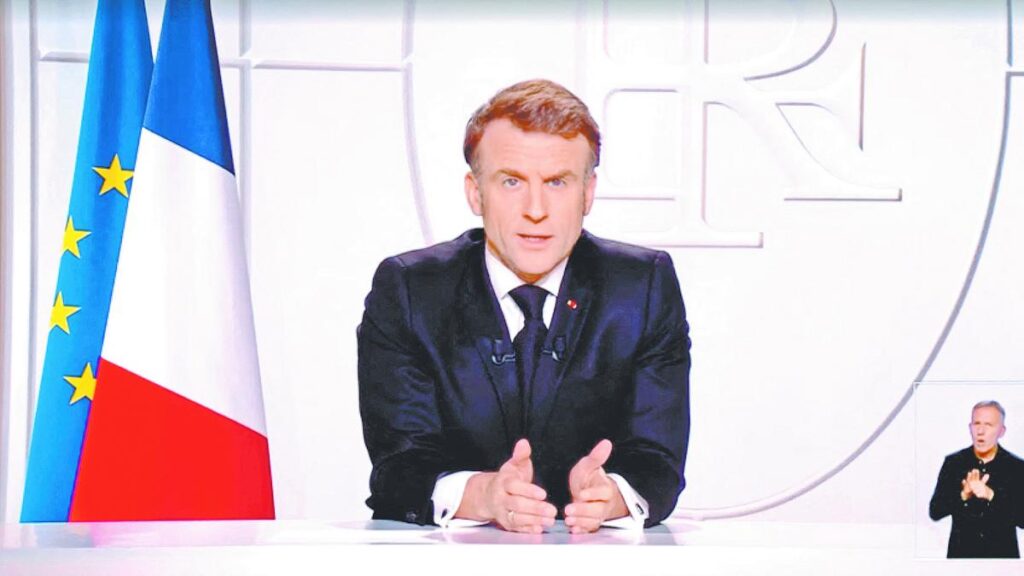Background and Relevance of Emmanuel Macron
Emmanuel Macron, the President of France, has expressed his willingness to sign a trade agreement between the European Union (EU) and the Mercosur bloc this year, provided that it includes measures to safeguard European agricultural interests from Mercosur’s competition.
Current Trade Dynamics and Proposed Changes
If ratified, the EU—Mercosur’s primary trading partner—could more easily export vehicles, machinery, and pharmaceutical products. Conversely, Mercosur countries could export more beef, sugar, soy, and honey to Europe.
Macron proposes adding a protocol to the agreement reached in December between the European Commission and Argentina, Brazil, Paraguay, and Uruguay. This protocol would require Mercosur countries to adhere to the same agricultural standards as European farmers, which are stricter regarding pesticide use but less competitive.
Key Provisions in the Proposed Protocol
Besides “mirror clauses,” the protocol could also enable a “safeguard clause” for specific sectors if trade suddenly “disrupts the market,” according to Macron.
Macron’s Commitment to the Agreement
When asked by Globo News if he is “ready” to sign the pact this year if Mercosur agrees to the changes, Macron affirmed: “Yes, because we will convince our farmers and agriculturalists that this agreement benefits them.”
Macron’s statements came after his Brazilian counterpart, Luiz Inácio Lula da Silva, urged him during a joint press conference to “open his heart” to the agreement and conclude it during Brazil’s Mercosur presidency in the second half of 2025.
French Farmers’ Concerns and EU Pressure
French farmers, who have recently organized significant protests and blocked roads with their tractors, requested Macron express his “firm rejection” of the trade deal. However, Macron deemed it “beneficial for many sectors” amidst the current trade tension due to Trump’s tariffs, though “risky for European agriculture.”
While waiting for Brussels to specify the EU ratification process, France seeks allies within the EU to form a blocking minority. On Thursday, alongside Hungary and Austria, France reiterated its opposition to an “unbalanced” agreement.
Mercosur’s Footing on Foot-and-Mouth Disease
Despite growing pressure within the EU to approve the agreement as a measure to mitigate the impact of Trump’s tariffs, there is a sense of urgency. In May, Germany’s new Chancellor Friedrich Merz emphasized the need for rapid ratification and implementation.
Jorge Viana, director of Brazil’s investment promotion agency APEX, warned on Friday that Europe would face a “high cost” if Trump applies tariffs. He called on the EU and Mercosur to “join forces as the world’s two largest food production blocs.”
Positive Development for Mercosur
On Friday, Paris delivered good news to Brazil. The World Organization for Animal Health (OIE) granted Lula a certificate declaring Brazil free from foot-and-mouth disease, a viral zoonosis affecting cattle, sheep, and goats. The recognition came without the need for Brazil to vaccinate its livestock.
Lula, who will conclude his visit to France on Monday, also visited the Ernesto Neto exhibition at Paris’s Grand Palais alongside Macron, as part of the France-Brazil Cultural Year. Lula was honorarily awarded a doctorate by Paris 8 University.
Key Questions and Answers
- What is the main issue Macron wants addressed in the EU-Mercosur agreement? Macron seeks to protect European agricultural interests from Mercosur’s competition by ensuring both sides adhere to the same agricultural standards.
- What could be the implications of ratifying the EU-Mercosur agreement? The EU could more easily export vehicles, machinery, and pharmaceutical products to Mercosur countries. In return, Mercosur could export more agricultural products like beef, sugar, soy, and honey to Europe.
- Why are French farmers concerned about the agreement? They fear that Mercosur’s less stringent agricultural standards would make it difficult for European farmers to compete.
- What is the significance of Brazil being declared free from foot-and-mouth disease? This recognition by the OIE allows Brazil to export its agricultural products without mandatory vaccination, potentially boosting its exports.






